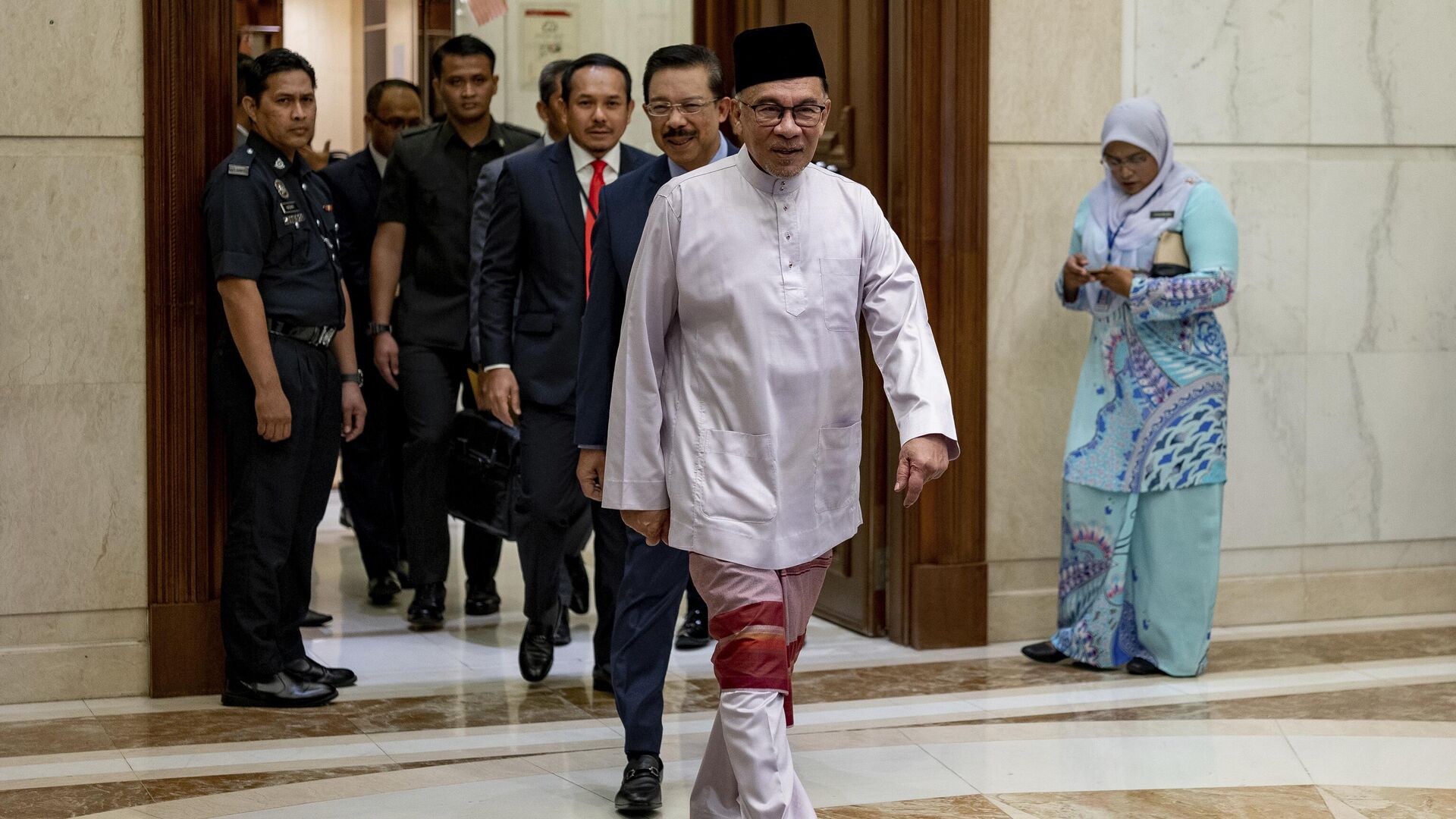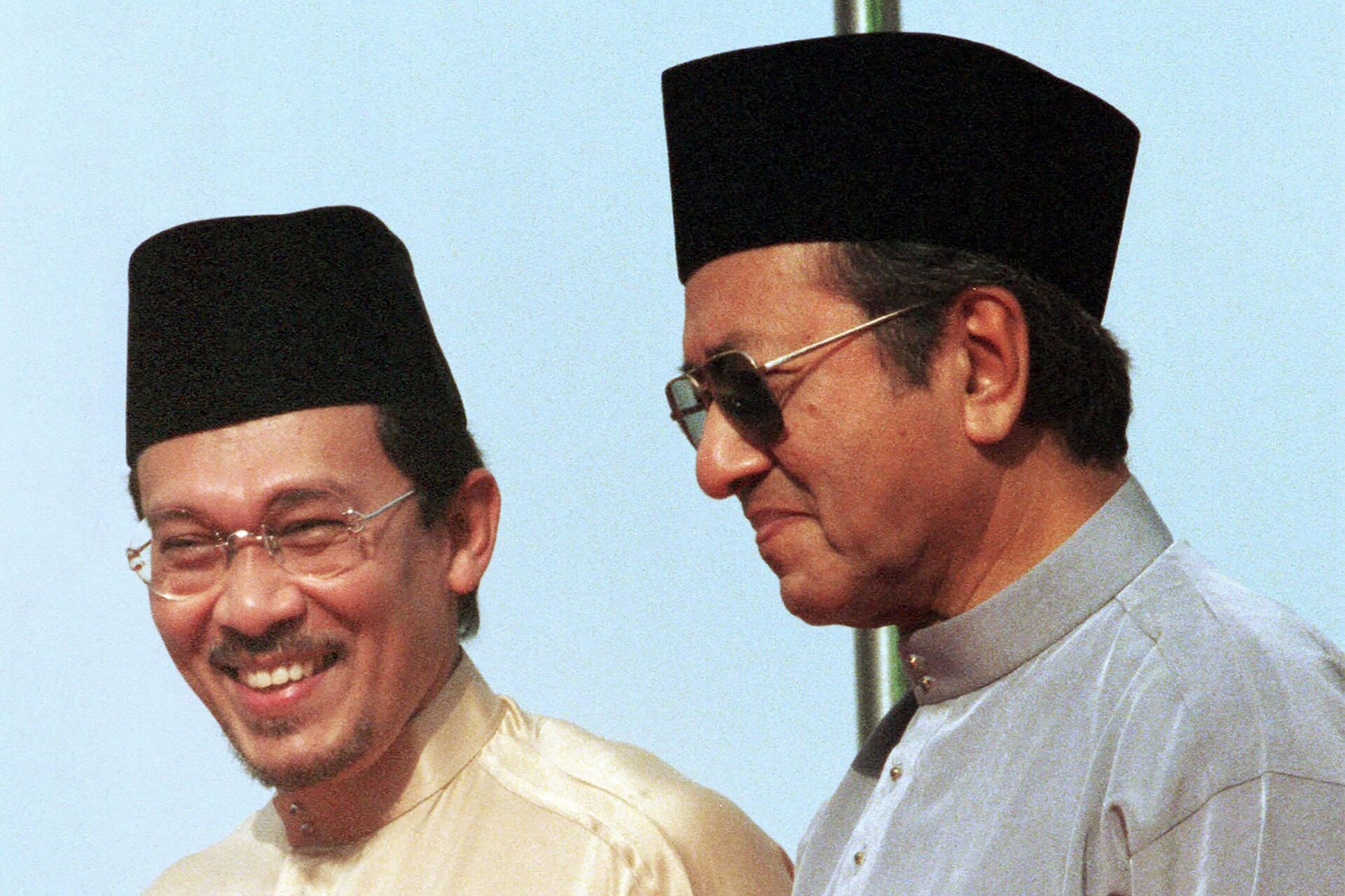https://sputnikglobe.com/20221125/democratic-icon-or-us-sponsored-actor-who-is-malaysias-new-pm-1104701257.html
‘Democratic Icon’ or US-sponsored Actor: Who is Malaysia’s New PM?
‘Democratic Icon’ or US-sponsored Actor: Who is Malaysia’s New PM?
Sputnik International
Malaysia’s post-election crisis came to an abrupt end on Thursday, with King Abdullah of Pahang naming Pakatan Harapan opposition coalition leader Anwar... 25.11.2022, Sputnik International
2022-11-25T15:28+0000
2022-11-25T15:28+0000
2024-03-11T10:57+0000
malaysia
vote
anwar ibrahim
sputnik explains
election
https://cdn1.img.sputnikglobe.com/img/07e6/0b/19/1104700155_0:0:3071:1728_1920x0_80_0_0_cbf41bde77789c1811f093ddc1218922.jpg
Veteran Malaysian politician-turned-opposition leader Anwar Ibrahim became the Asian nation’s 10th prime minister Thursday, with his long journey to office preceded by decades of political intrigue, and an eight year stint in prison. But more on that later.Western media reacted to news of Anwar’s appointment with jubilation, lavishing Anwar with praise and characterizing him as an “icon of democracy,” anti-corruption champion, and veteran reformist who spent decades challenging the hegemony of the nationalist United Malays National Organization (UMNO) - the political party at the heart of the Barisan Nasional coalition, which governed Malaysia through most of its post-colonial history from the 1950s until 2018, and again from 2021 to 2022.In his first post-appointment press conference, Anwar promised to forge a broad coalition which will include his Pakatan Harapan ("Alliance of Hope") alliance, which took 82 of the 222 seats in parliament in Saturday’s vote, Barisan Nasional, which got 30, and the Parti Pesaka Bumiputera Bersatu, a right-wing party in the state of Sarawak, eastern Malaysia, which got 23 seats. Other smaller electoral blocs and parties including the Parti Islam Se-Malaysia, which won 20 seats, have also been invited to join the big tent.Barisan Nasional agreed to join the Anwar-led coalition after King Abdullah urged parties to reconcile their differences and put an end to the turmoil that has accompanied Malaysian politics since the 2018 elections, which put an end to UMNO’s virtual monopoly on power.Decades-Long Political RiseAnwar has been a household name in Malaysian politics for decades, becoming a long-time ally of Mahathir Mohamad, who served as prime minister between 1981 and 2003, and again between 2018 and 2020. Starting out as a Muslim youth activist, Anwar progressed through the ranks of Mahathir’s Cabinets, serving as minister of culture, agriculture, and education in the 1980s, and between 1991 and 1998 as finance minister. He was also tapped as deputy prime minister between 1993 and 1998.Outwardly, Anwar’s political future seemed bright, and in 1998, the politician was tapped by the World Bank and the International Monetary Fund for a stint as chairman of the development committee – a ministerial forum for intergovernmental contacts and consensus-building on development matters.At home, however, Anwar’s fortunes quickly turned against him, with Prime Minister Mahathir firing him in September 1998 amid the raging Asian Financial Crisis, with the political falling out apparently sparked by Anwar’s support of IMF remedies, plus suspected sympathies for billionaire speculator George Soros – who had bet against Malaysia’s currency ahead of the crisis and made off with a fortune.Anwar responded to his ouster by creating the Parti Keadilan Rakyat ("People’s Justice Party") in 1999, with the party becoming the core of the Pakatan Harapan opposition bloc over the next two decades.Adding insult to injury, Anwar’s fall from political grace was accompanied by corruption and sodomy convictions (sodomy is a crime under Malaysia’s British colonial-era-inspired criminal code). The first conviction came in 1999, for which he received a six-year sentence. He was released in 2004. The second conviction came in 2015. By the time he was released from prison for the second time in 2018, Anwar had spent nearly a decade in jail. He maintained his innocence throughout the ordeal.Although Western accounts on Anwar’s criminal convictions focus on the sodomy charges, the criminal allegations against him also included corruption, among which was an alleged attempt in 1998 to get police to coerce his accusers’ into retracting their allegations of sexual misconduct, and to interfere in the police probe.Boning Up on US TiesAfter his release in the mid-2000s, Anwar would form an extensive web of contacts with leading Western educational institutions and think tanks, giving lecturing tours at Johns Hopkins, Georgetown, and Oxford, and being tapped as chairman of the "Foundation for the Future," a Washington-based think tank funded by the US State Department, Liz Cheney, and neocons from the Bush White House. Anwar was honored as a regular speaker, panelist, and guest at events hosted by the National Endowment for Democracy, a notorious non-profit and grant maker often described as the “second CIA.” In a 2019 talk, the NED revealingly introduced Anwar as a “core member of our community of democracy intellectuals and advocates,” and hailed him as a staunch defender of “the universality of the democratic idea.”Concurrently with his “pro-democracy” work abroad, Anwar shored up his position as leading opposition figure at home, making several abortive attempts to form governing coalitions between the late 2000s and the mid-2010s. Throughout his time in opposition, the politician’s key talking points, including fighting corruption, creating democratic institutions, and political and economic liberalization.The 2018 Malaysian elections put Anwar within reach of the prime minister’s office, with Pakatan Harapan’s formation of a government, (which in a fit of irony, was now being led by Mahathir – whose electoral bloc split from UMNO in 2016), resulting in a royal pardon for Anwar, and assurances that would be rotated into the prime minister’s office in two years’ time. The promises turned out to be a moot point, with the Pakatan Harapan government collapsing in 2020 thanks to the defection of over 30 MPs, and a new coalition – the Perikatan Nasional, came to power.The 2018 election appeared to crystalize American support for Anwar, with media reporting evidence of extensive US meddling in Malaysian politics by providing funding for a host of “pro-democracy” and “anti-corruption” NGOs, media, and legal and human rights entities and groups. Barisan Nasional politician Najib Razak, who served as PM between 2009 and 2018, seemed to have made the fatal mistake of promising to take his country’s ties with Beijing to “new highs,” and to ramp up economic, energy and defense cooperation with China. Upon coming to power in 2018, Pakatan Harapan’s first moves included putting a freeze on Chinese infrastructure investments in Malaysia. Razak was subsequently convicted of money-laundering in the 1Malaysia Development Berhad scandal and sentenced to 12 years in prison.Political CrisisThe 2018 vote set the stage for an unprecedented wave of political uncertainty in Malaysian politics, with the Mahathir-led Perikatan Nasional coalition collapsing in February 2020, its successor, the Perikatan Nasional-led coalition of Prime Minister Muhyiddin Yassin folding in August 2021, and the Barisan Nasional coalition, led by now-former Prime Minister Ismail Sabri Yaakob, dissolving parliament in October, sparking the 2022 elections.The 2022 vote appears to have featured more of the same as far as US meddling was concerned, with Razak and others accusing Washington, the NED, the US Agency for International Development, and its contractor DAI Global of pumping millions of dollars of dark money into Malaysian politics to aid Anwar-linked NGOs, media, and other entities. Last week, Sputnik published documents shedding light on some of these suspected activities.The geopolitical implications of Anwar’s ascension to power are hard to tell. Notwithstanding his many years of close ties to US institutions, the politician has promised to balance relations between Kuala Lumpur, Washington, and Beijing.“China is an important neighbor. It is a priority to enhance bilateral relations with China, trade, investments,” Anwar said in his first press conference as prime minister. “Similarly, we need to relate to the United States, with Europe…with ASEAN,” he added, referring to the 10-nation Southeast Asian intergovernmental bloc promoting economic, security, political, and cultural interaction and integration.Whether the US will appreciate Anwar’s apparent attempt to walk a tightrope of balanced ties is hard to say.“The United States and Malaysia have forged a strong relationship – a comprehensive partnership – rooted in close economic, people-to-people, and security ties. We look forward to deepening our friendship and cooperation based on shared democratic principles and respect for human rights and the rule of law,” Secretary of State Antony Blinken said Thursday, outlining Washington’s possible expectations for the Malaysian political leader, whose election victory the US helped to ensure.The US, Blinken said, remains “committed” to working with Malaysia in advancing a “free and open, connected, prosperous, secure and resilient Indo-Pacific region.” If US actions vis-à-vis other countries in the region are anything to go by, this could very well mean an attempt by Washington to add Malaysia to its anti-Chinese economic and security plans.
https://sputnikglobe.com/20221124/malaysias-king-names-anwar-ibrahim-as-prime-minister-ending-political-stalemate--1104618019.html
https://sputnikglobe.com/20221125/us-ned-global-meddler-and-rightful-heir-of-cia-1104671859.html
https://sputnikglobe.com/20221123/experts-malaysia-will-continue-walking-tightrope-between-us--china-no-matter-who-becomes-pm-1104574358.html
https://sputnikglobe.com/20221119/malaysia-elections-2022-trove-of-documents-suggests-us-tried-to-engineer-soft-coup-1104438669.html
https://sputnikglobe.com/20221121/harris-tells-marcos-south-china-sea-armed-attack-on-philippine-forces-would-trigger-defense-pact-1104513787.html
malaysia
Sputnik International
feedback@sputniknews.com
+74956456601
MIA „Rosiya Segodnya“
2022
News
en_EN
Sputnik International
feedback@sputniknews.com
+74956456601
MIA „Rosiya Segodnya“
Sputnik International
feedback@sputniknews.com
+74956456601
MIA „Rosiya Segodnya“
malaysia, malaysia elections, malaysia prime minister, malaysia new prime minister, anwar ibrahim, us-backed, us-supported
malaysia, malaysia elections, malaysia prime minister, malaysia new prime minister, anwar ibrahim, us-backed, us-supported
‘Democratic Icon’ or US-sponsored Actor: Who is Malaysia’s New PM?
15:28 GMT 25.11.2022 (Updated: 10:57 GMT 11.03.2024) Malaysia’s post-election crisis came to an abrupt end on Thursday, with King Abdullah of Pahang naming Pakatan Harapan opposition coalition leader Anwar Ibrahim prime minister. The appointment was designed to end the political stalemate that emerged after Saturday’s vote, in which no party or bloc got enough votes to form a majority government.
Veteran Malaysian politician-turned-opposition leader Anwar Ibrahim became the Asian nation’s 10th prime minister Thursday, with his long journey to office preceded by decades of political intrigue, and an eight year stint in prison. But more on that later.
Western media reacted to news of Anwar’s appointment with jubilation, lavishing Anwar with praise and characterizing him as an
“icon of democracy,” anti-corruption champion, and
veteran reformist who spent decades challenging the hegemony of the nationalist United Malays National Organization (UMNO) - the political party at the heart of the Barisan Nasional coalition, which governed Malaysia through most of its post-colonial history from the 1950s until 2018, and again from 2021 to 2022.
In his first post-appointment press conference, Anwar promised to forge a broad coalition which will include his Pakatan Harapan ("Alliance of Hope") alliance, which took 82 of the 222 seats in parliament in Saturday’s vote, Barisan Nasional, which got 30, and the Parti Pesaka Bumiputera Bersatu, a right-wing party in the state of Sarawak, eastern Malaysia, which got 23 seats. Other smaller electoral blocs and parties including the Parti Islam Se-Malaysia, which won 20 seats,
have also been invited to join the big tent.
“This is a national unity government, all are welcome as long as you accept anti-corruption, good governance and Malaysia for all Malaysians,” Anwar said.
Barisan Nasional agreed to join the Anwar-led coalition after King Abdullah urged parties to reconcile their differences and put an end to the turmoil that has accompanied Malaysian politics since the 2018 elections, which put an end to UMNO’s virtual monopoly on power.
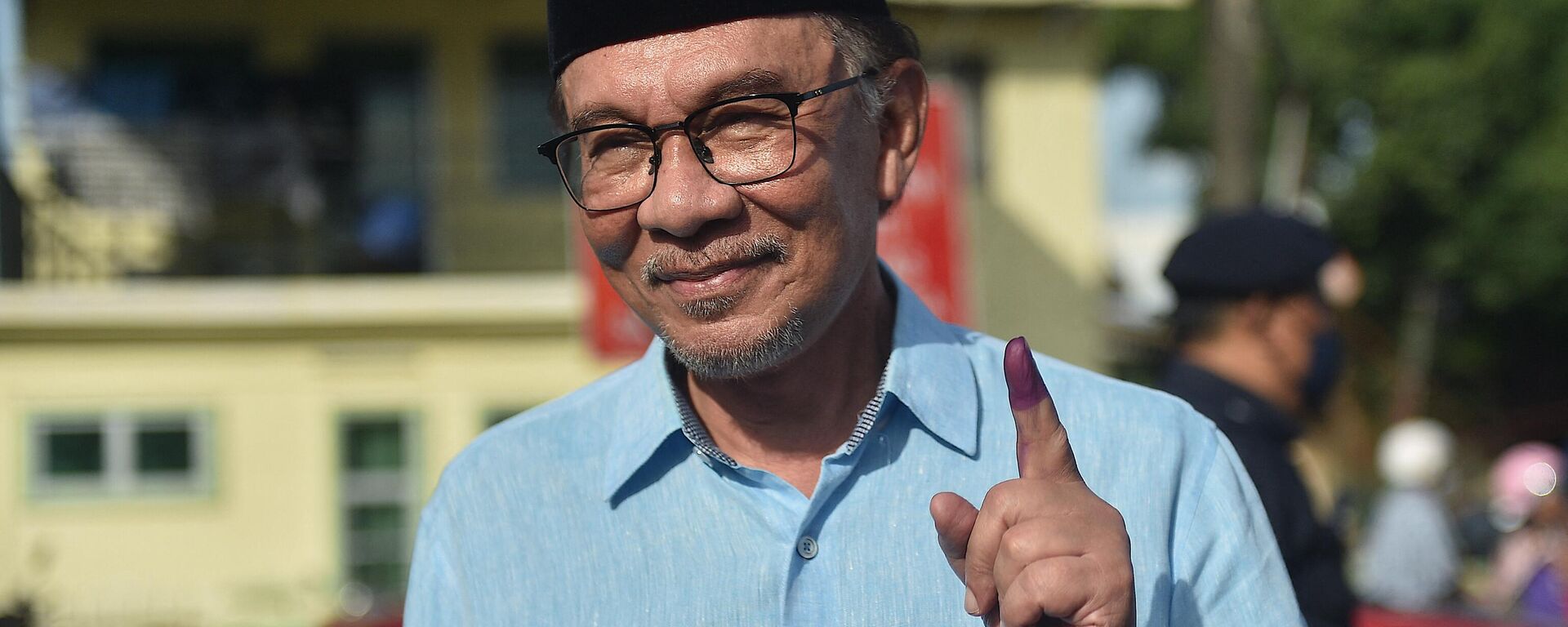
24 November 2022, 05:39 GMT
Decades-Long Political Rise
Anwar has been a household name in Malaysian politics for decades, becoming a long-time ally of Mahathir Mohamad, who served as prime minister between 1981 and 2003, and again between 2018 and 2020. Starting out as a Muslim youth activist, Anwar progressed through the ranks of Mahathir’s Cabinets, serving as minister of culture, agriculture, and education in the 1980s, and between 1991 and 1998 as finance minister. He was also tapped as deputy prime minister between 1993 and 1998.
Outwardly, Anwar’s political future seemed bright, and in 1998, the politician was tapped by the World Bank and the International Monetary Fund for a stint as chairman of the development committee – a ministerial forum for intergovernmental contacts and consensus-building on development matters.
At home, however, Anwar’s fortunes quickly turned against him, with Prime Minister Mahathir firing him in September 1998 amid the raging Asian Financial Crisis, with the political
falling out apparently sparked by Anwar’s support of IMF remedies, plus
suspected sympathies for billionaire speculator George Soros – who had bet against Malaysia’s currency ahead of the crisis and made off with a fortune.
Anwar responded to his ouster by creating the Parti Keadilan Rakyat ("People’s Justice Party") in 1999, with the party becoming the core of the Pakatan Harapan opposition bloc over the next two decades.
Adding insult to injury, Anwar’s fall from political grace was accompanied by corruption and sodomy convictions (
sodomy is a crime under Malaysia’s British colonial-era-inspired criminal code). The first conviction came in 1999, for which he received a six-year sentence. He was released in 2004. The second conviction came in 2015. By the time he was released from prison for the second time in 2018, Anwar had spent nearly a decade in jail. He maintained his innocence throughout the ordeal.
Although Western accounts on Anwar’s criminal convictions focus on the sodomy charges, the criminal allegations against him also
included corruption, among which was an alleged attempt in 1998 to get police to coerce his accusers’ into retracting their allegations of sexual misconduct, and to interfere in the police probe.
After his release in the mid-2000s, Anwar would form an extensive web of contacts with leading Western educational institutions and think tanks, giving lecturing tours at Johns Hopkins, Georgetown, and Oxford, and being tapped as chairman of the "Foundation for the Future," a Washington-based think tank
funded by the US State Department, Liz Cheney, and
neocons from the Bush White House. Anwar was honored as a regular speaker, panelist, and guest at events hosted by the National Endowment for Democracy, a notorious non-profit and grant maker often described as the “second CIA.” In a 2019 talk, the NED
revealingly introduced Anwar as a “core member of our community of democracy intellectuals and advocates,” and hailed him as a staunch defender of “the universality of the democratic idea.”

25 November 2022, 09:56 GMT
Concurrently with his “pro-democracy” work abroad, Anwar shored up his position as leading opposition figure at home, making several abortive attempts to form governing coalitions between the late 2000s and the mid-2010s. Throughout his time in opposition, the politician’s key talking points, including fighting corruption, creating democratic institutions, and political and economic liberalization.
The 2018 Malaysian elections put Anwar within reach of the prime minister’s office, with Pakatan Harapan’s formation of a government, (which in a fit of irony, was now being led by Mahathir – whose electoral bloc split from UMNO in 2016), resulting in a royal pardon for Anwar, and assurances that would be rotated into the prime minister’s office in two years’ time. The promises turned out to be a moot point, with the Pakatan Harapan government collapsing in 2020 thanks to the defection of over 30 MPs, and a new coalition – the Perikatan Nasional, came to power.
The 2018 election appeared to crystalize American support for Anwar, with media reporting evidence of extensive US meddling in Malaysian politics by
providing funding for a host of “pro-democracy” and “anti-corruption” NGOs, media, and legal and human rights entities and groups. Barisan Nasional politician Najib Razak, who served as PM between 2009 and 2018, seemed to have made the fatal mistake of
promising to take his country’s ties with Beijing to “new highs,” and to ramp up economic, energy and defense cooperation with China. Upon coming to power in 2018, Pakatan Harapan’s first moves included
putting a freeze on Chinese infrastructure investments in Malaysia. Razak was subsequently convicted of money-laundering in the 1Malaysia Development Berhad scandal and sentenced to 12 years in prison.
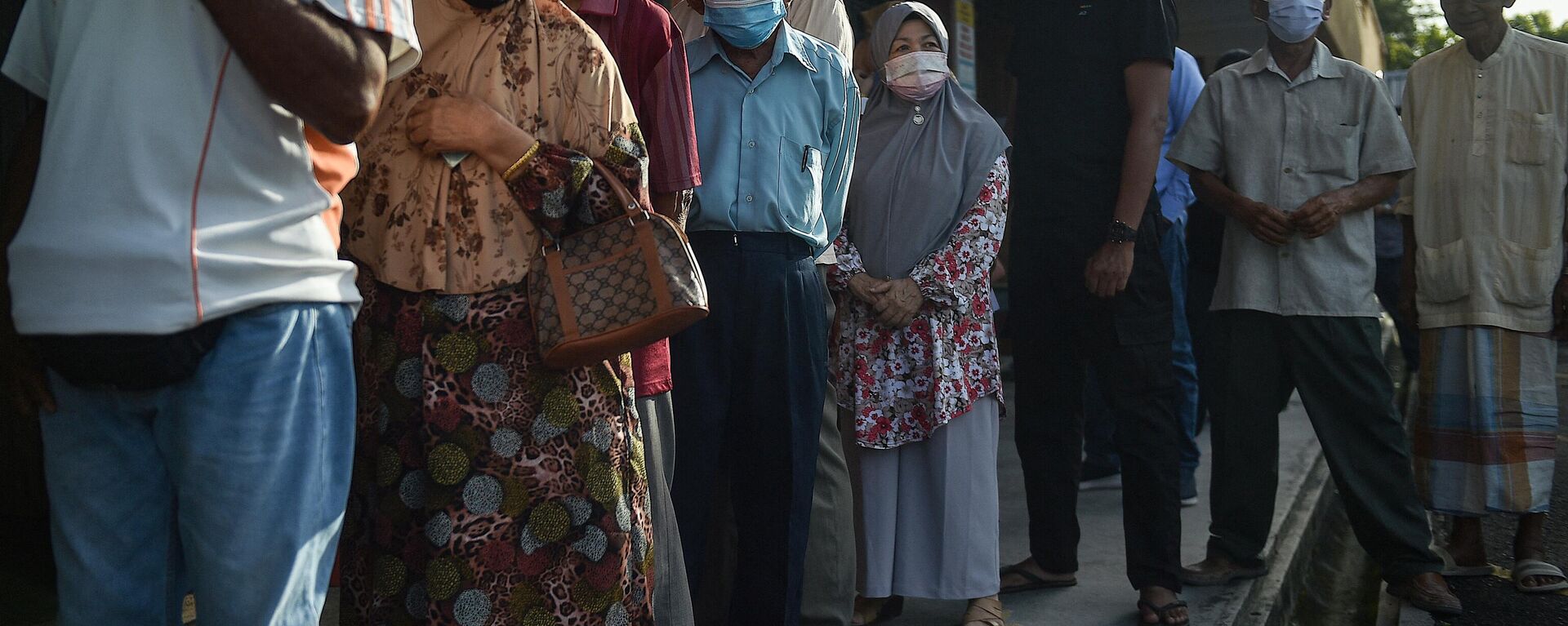
23 November 2022, 09:38 GMT
The 2018 vote set the stage for an unprecedented wave of political uncertainty in Malaysian politics, with the Mahathir-led Perikatan Nasional coalition collapsing in February 2020, its successor, the Perikatan Nasional-led coalition of Prime Minister Muhyiddin Yassin folding in August 2021, and the Barisan Nasional coalition, led by now-former Prime Minister Ismail Sabri Yaakob, dissolving parliament in October, sparking the 2022 elections.
The 2022 vote appears to have featured more of the same as far as US meddling was concerned, with Razak and others accusing Washington, the NED, the US Agency for International Development, and its contractor DAI Global of pumping millions of dollars of dark money into Malaysian politics to aid Anwar-linked NGOs, media, and other entities. Last week, Sputnik published documents shedding light on some of these suspected activities.
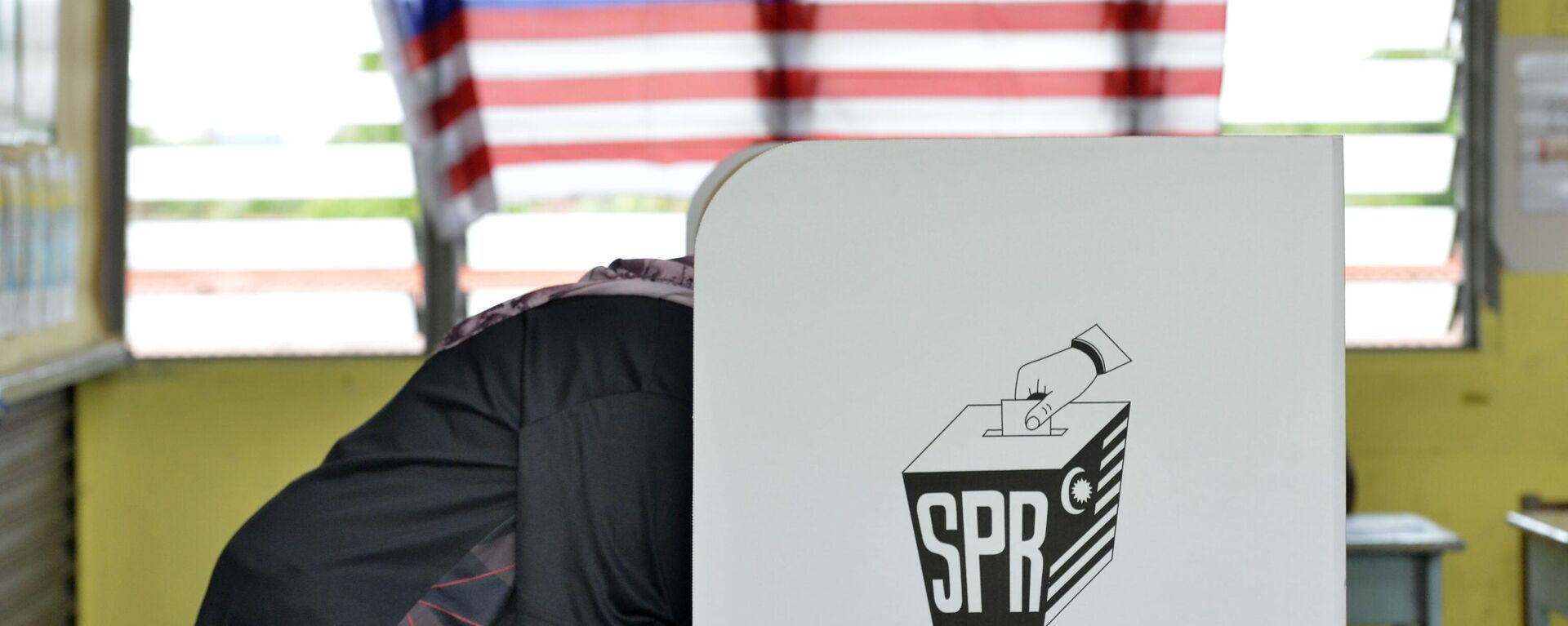
19 November 2022, 17:26 GMT
The geopolitical implications of Anwar’s ascension to power are hard to tell. Notwithstanding his many years of close ties to US institutions, the politician has promised to balance relations between Kuala Lumpur, Washington, and Beijing.
“China is an important neighbor. It is a priority to enhance bilateral relations with China, trade, investments,” Anwar
said in his first press conference as prime minister. “Similarly, we need to relate to the United States, with Europe…with ASEAN,” he added, referring to the 10-nation Southeast Asian intergovernmental
bloc promoting economic, security, political, and cultural interaction and integration.
Whether the US will appreciate Anwar’s apparent attempt to walk a tightrope of balanced ties is hard to say.
“The United States and Malaysia have forged a strong relationship – a comprehensive partnership – rooted in close economic, people-to-people, and security ties. We look forward to deepening our friendship and cooperation based on shared democratic principles and respect for human rights and the rule of law,” Secretary of State Antony Blinken
said Thursday, outlining Washington’s possible expectations for the Malaysian political leader, whose election victory the US helped to ensure.
The US, Blinken said, remains “committed” to working with Malaysia in advancing a “free and open, connected, prosperous, secure and resilient Indo-Pacific region.” If US actions vis-à-vis other countries in the region are anything to go by, this could very well mean an attempt by Washington to add Malaysia to its anti-Chinese economic and security plans.
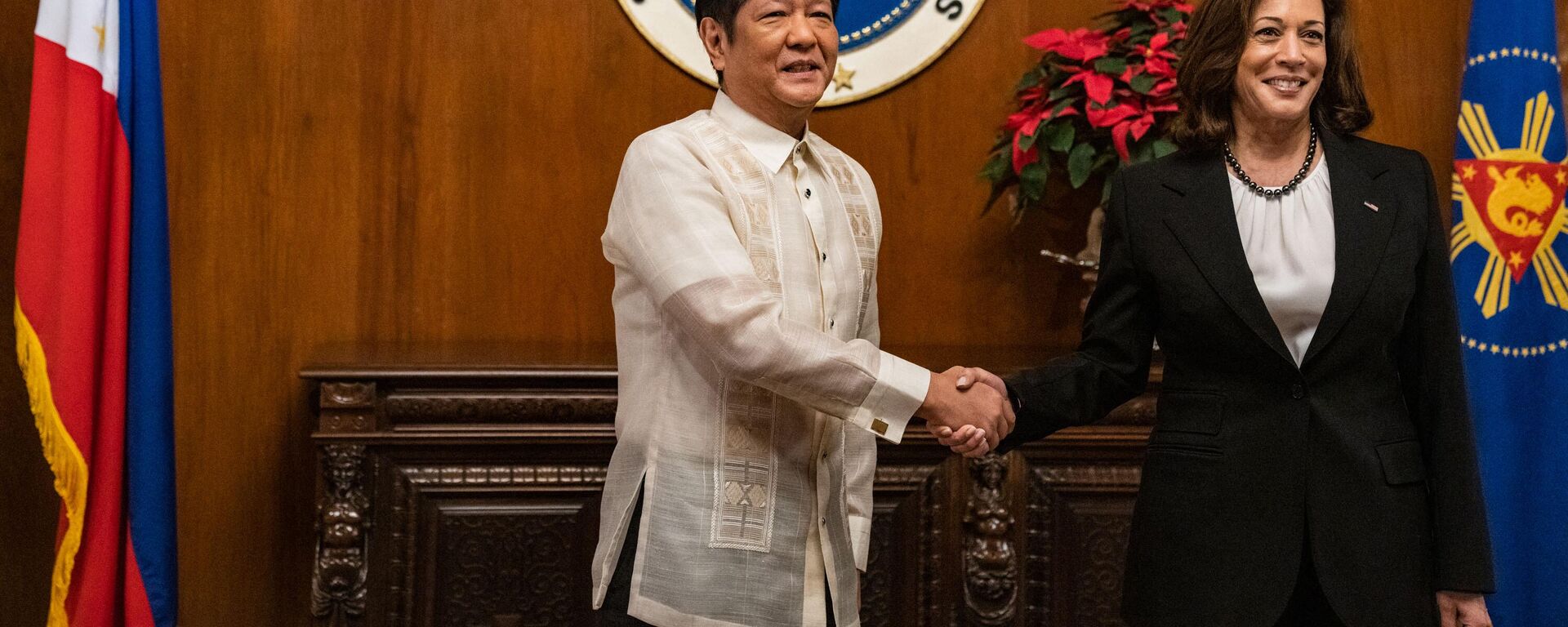
21 November 2022, 18:38 GMT
